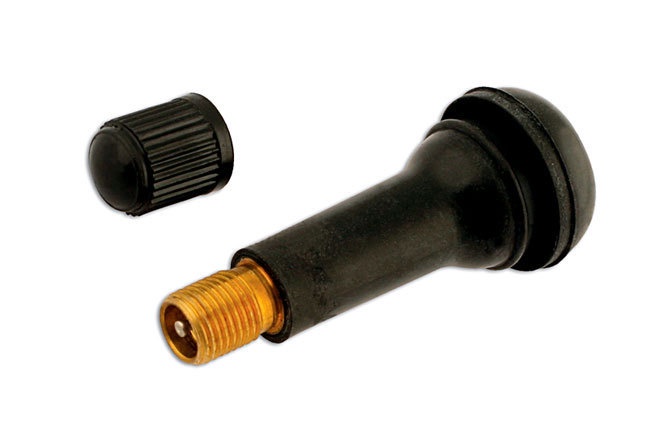When it comes to maintaining your vehicle, you might think about changing the oil, checking the brakes, or ensuring the engine runs smoothly.
While these are undoubtedly essential aspects of car care, there's another component that often goes unnoticed but plays a critical role in your vehicle's performance and safety – the tyre valve.
Tyre valves are small, inconspicuous components located on your car's wheels, but they have a significant impact on your driving experience.
In this blog, we will explore the importance of tyre valves for cars and why they deserve more attention.
1. Inflation Control:
Tyre valves are the gateway to maintaining proper tyre pressure. Correct tyre pressure is crucial for several reasons:
- Safety: Properly inflated tyres provide better traction and handling, reducing the risk of accidents.
- Fuel Efficiency: Under-inflated tyres can increase fuel consumption, costing you more at the pump.
- Tyre Life: Maintaining the right pressure extends the life of your tyres, saving you money in the long run.
2. Air Seal:
Tyre valves are equipped with a valve core and a sealing cap. These components ensure an airtight seal, preventing air from escaping and debris from entering the tyre. An effective seal is vital to maintain consistent pressure and tyre health.
3. Easy Access for Inflation:
Without tyre valves, adding or releasing air from your tyres would be a cumbersome task. Tyre valves provide a convenient and accessible point for inflation and pressure checks.
4. Pressure Monitoring Systems:
Modern cars often come equipped with tyre pressure monitoring systems (TPMS).
These systems rely on sensors in the tyre valves to monitor pressure and alert the driver to any deviations. Properly functioning tyre valves are essential for accurate TPMS readings.
5. Different Types for Different Needs:
There isn't a one-size-fits-all approach when it comes to tyre valves.
Different vehicles and applications require various types of valves, such as standard rubber snap-in valves, high-pressure metal valves for performance vehicles, or even tubeless tyre valves for motorcycles. The right valve ensures compatibility and safety.
6. Valve Material Matters:
Tyre valves can be made from various materials, including rubber, brass, and aluminum. The choice of material depends on factors like the type of vehicle and the intended use.
For instance, brass valves are often preferred for heavy-duty and high-pressure applications due to their durability.
7. Regular Maintenance:
Like any other part of your vehicle, tyre valves require regular maintenance. Inspect them for signs of wear, cracking, or damage, and replace them if necessary.
Ensure the valve caps are in place to prevent dust and moisture from affecting the valve core.
8. Safety First:
Tyre valves play a crucial role in road safety. Properly maintained valves help prevent blowouts, reduce the risk of accidents, and contribute to a more predictable and controlled driving experience.


No comments yet